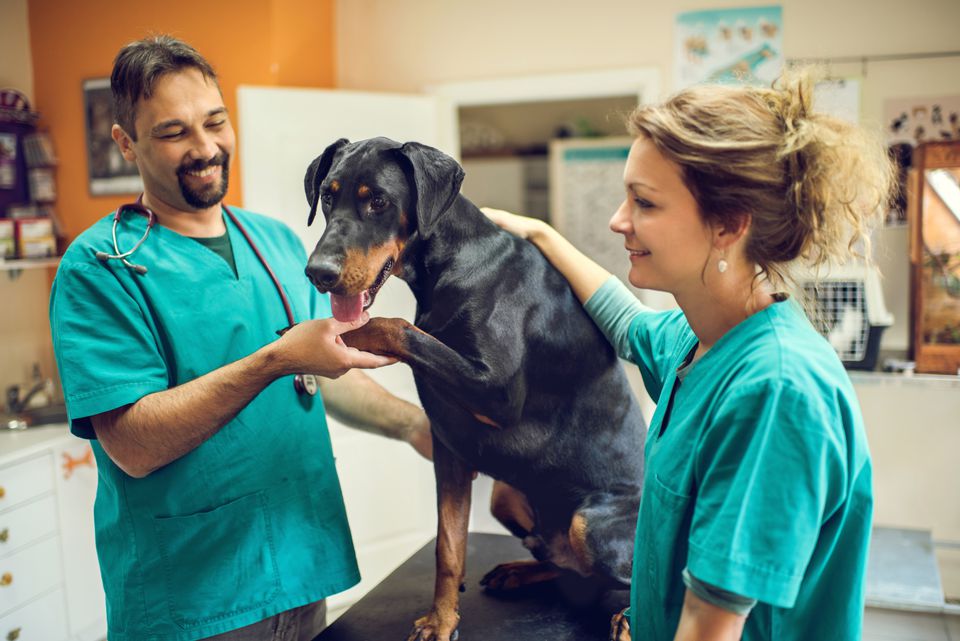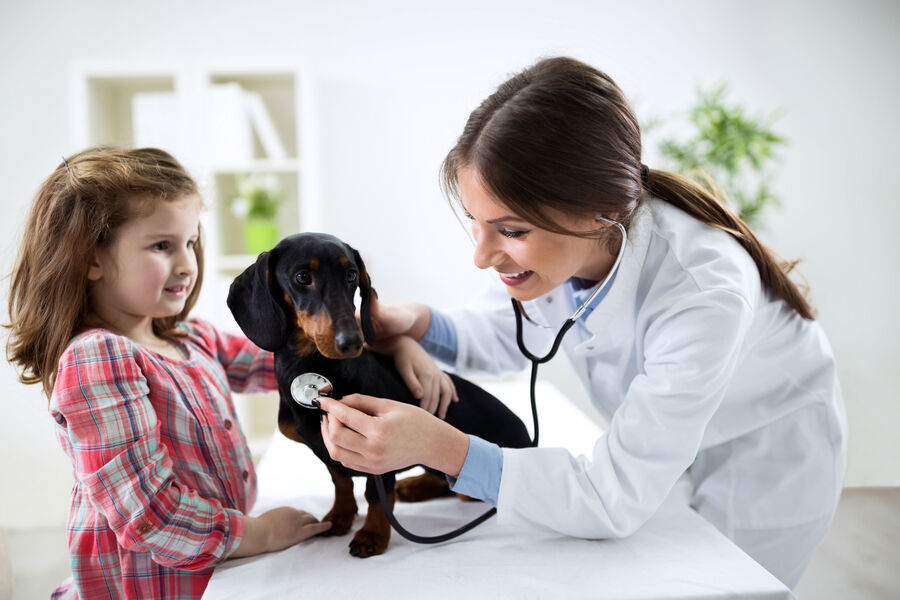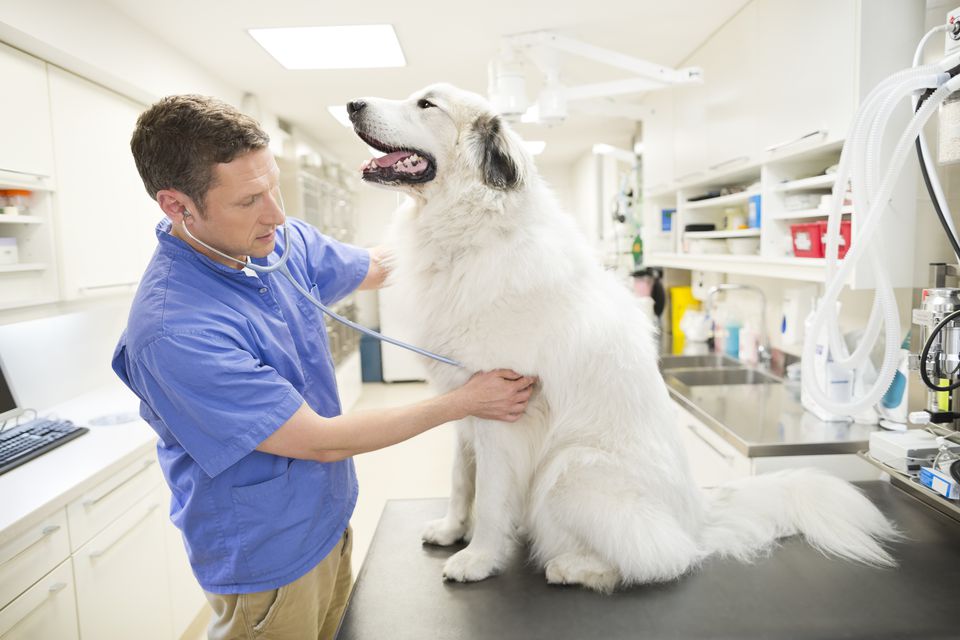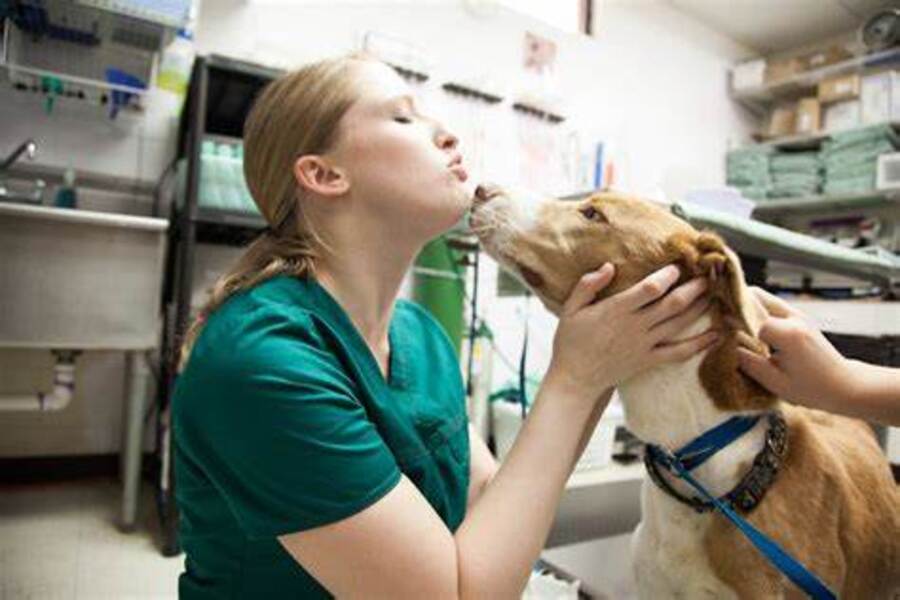- General Factors That Determine the Frequency of the Veterinarian Visits
- Annual Examination
- Puppy Veterinarian Visits
- Recommended Veterinarian Visits for Adult Dogs (1-7 Years Old)
- Recommended Veterinarian Visits for Senior Dogs (8 years old and older)
- In Which Cases Should You Bring Your Dog to a Veterinarian Immediately?

The responsibility of all owners/handlers is to ensure that their furry friends are healthy and regularly monitor their behavior. Sometimes due to our hectic daily life we may forget that our pets need not only food and water but also visits by a veterinarian, grooming, depending on the breed, exercises, and interactive games to keep them not only physically but also mentally fit.
Since the dog’s health should be a priority of all owners, you may wonder how often it is normal and recommended to bring your dog for a checkup by a veterinarian.
General Factors That Determine the Frequency of the Veterinarian Visits
It generally depends on the health condition and the age of your paw friend. Some breeds are more prone to certain health diseases, i.e. the Huskies are predisposed to autoimmune conditions that affect their skin, pugs are likely to have eye problems, large breeds like the German Shepherds are predisposed to Hip Dysplasia, Bulldogs are prone to respiratory illness...etc. Hence, the breed may also play a role when you consider veterinarian appointments.
Annual Examination
It is recommended that owners bring their furry pets to get examined at least once a year. This is considered a general rule for a few reasons. Same as humans dogs and cats need to through preventive checks on an annual basis. That way you will be able to keep track of your dog’s health condition and be informed about any issues, that they may experience, and you are not aware of. Moreover, helpful information about their weight, diet, including needed nutrients, exercises, dental care, and many more important factors will be provided. The earlier an eventual illness has been recognized and diagnosed the quicker your dog will go through proper treatment and will recover. Auscultation will be performed, the ears, the eyes and the skin of your dog will be checked. Moreover, if any vaccinations need to be administered, you will be informed about that.
Some veterinarians also offer home visits, so you can use this option if it is available.
Puppy Veterinarian Visits
Veterinarian visits are mandatory for owners who got a new puppy. Puppies need to go through monthly checks for the first 4-6 months of their lives.
According to the American Kennel Club, the following vaccines need to be applied:
- Against: Distemper and Parvovirus. Vaccination against Bordetella is considered optional. The recommended age for a pup to get this vaccination is 6-8 weeks;
- DHPP (Distemper, Adenovirus (Hepatitis), Parainfluenza, and Parvovirus). Vaccinations against Influenza, Leptospirosis, Bordetella, Lyme disease are deemed optional. The recommended puppy’s age is 10-12 weeks;
- DHPP, Rabies- second booster. Vaccination against: Influenza, Leptospirosis, Lyme disease, and Bordetella are considered optional up to the veterinarian’s discretion. The recommended pup’s age is 16-18 weeks;
- DHPP, Rabies- third booster. Optional vaccinations are against Coronavirus, Leptospirosis, Lyme disease, and Bordetella. The recommended pup’s age is 12-16 months;

This schedule is optional, and it can be adapted to your pup’s general health condition and to your location. The vaccinations listed above will protect your furry friends from health conditions with serious consequences and will save you a lot of money in the future if a problem arises. Moreover, the pup will get used to the veterinarian, and it is likely to stay calm at any future appointments. The more positive attitude the pup has towards the veterinarian the easier it will be for you to bring it to them.
Recommended Veterinarian Visits for Adult Dogs (1-7 Years Old)
Adult dogs need regular veterinarian visits, at least once a year. As we already mentioned, preventive checks are important in case that health issues, not easily detectable by handlers, occur. Furthermore, a booster shot against rabies and DHPP vaccine are likely to be needed. If you check again the optional schedule listed above, you will see, that additional (optional) vaccines against Coronavirus, Leptospirosis, Lyme disease and Bordetella may also need to be made. This depends basically on your location as depending on where you live the pup may be exposed to certain diseases, and the veterinarian will give you accurate medical advice. The ears and the teeth of your furry friend will also be examined, as issues in these areas, considered by some handlers not so important, may have serious consequences for the general health condition of the dog. Heartworm tests may also be run. If an aspect of your canine’s daily routine requires changes or needs extra attention on your part, like his/her nutrition diet or exercises, you will be informed about that during the exam.
Any behavioral issues that your doggy may experience can be related to certain health conditions. You will be able to provide the veterinarian with detailed information about your canine’s behavior and wellness. Any details about your dog will help the veterinarian evaluate better his/her condition and run the proper tests.

Recommended Veterinarian Visits for Senior Dogs (8 years old and older)
Similar to humans, the older dogs get the more predisposed they are to certain illnesses and age-related health conditions. Along with the annual exams, semi-annual veterinarian checks will also be recommended. Tests to diagnose the dog’s general health condition, including blood tests, may be run. The veterinarian will be able to use the results of these tests as a reference for future examinations.
Senior dogs are likely to have lost or broken some of their teeth and proper dental care may be needed. Since dogs at an older age are likely to change their appetite (usually aging in dogs comes with appetite loss, but an appetite increase can also occur), a new feeding schedule or changing in the nutrition diet may be required. If your dog has begun to lose weight, the veterinarian may prescribe food that is high in proteins and is specially designed for senior dogs. On the other hand, meals with fewer calories may also be recommended.

In Which Cases Should You Bring Your Dog to a Veterinarian Immediately?
Unfortunately unpleasant and potentially dangerous situations may occur, and you will need to take immediate actions. We will list some situations and symptoms, whose presence requires a veterinarian visit as soon as possible. Some of these are:
- If you notice that your dog can not breathe/has stopped breathing;
- If your dog was hit by a vehicle;
- If you doubt that your dog has broken bones or injured organs;
- If your dog gets unconscious;
- If your dog is experiencing a seizure;
- If your dog has been intoxicated;
- If your dog shows signs of immense pain like shaking or whining;
- If your dog vomits and has diarrhea and the symptoms have been continuing for more than 24 hours;
- If your dog’s stomach or other parts of his/her body have swollen;
- If your dog’s gums are pale.
Regular veterinarian checks are a necessity. You should not bring your furry friend for examination only after a problem has already occurred, but for preventative checks as well. That way you as a responsible owner/handler will ensure that your canine is healthy and fit.












